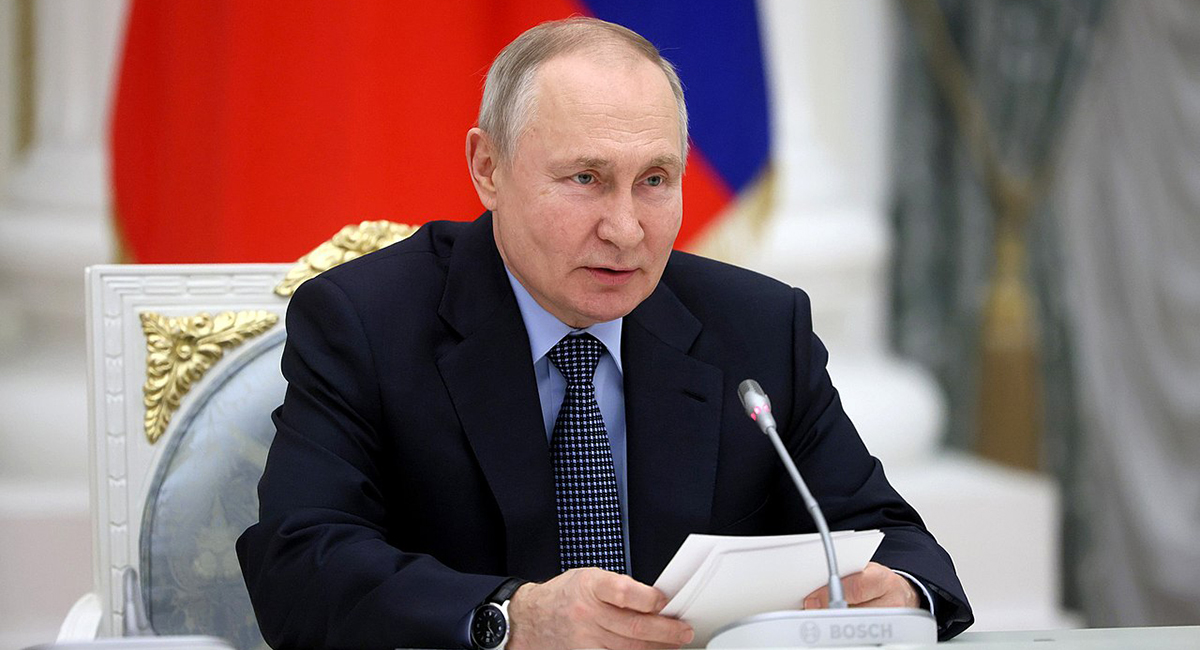The news from Moscow is that Russia is likely to abandon the 13 percent flat-rate income tax enacted in 2000, not long after a group of visiting conservative/libertarian American economists, including me, advised newly installed President Vladimir Putin to dramatically lower the country’s income tax. As I pointed out in this space last year, Russian economic growth flourished (over 7 percent annual economic growth) in Putin’s first two terms after the flat tax was adopted. Income tax revenues actually increased sharply, as transactions in the vast underground economy dramatically declined as individuals felt they could afford to be honest since the new tax burden was not oppressive. It is the Laffer Curve at work—tax rates fall, so economic activity dramatically expands, increasing tax revenues.
Yet Russia is now suffering from fiscal strain. Its cash and gold reserves are small and declining. Trying to compete with much bigger nations economically, like the U.S. and China, is straining the economy, particularly given Russia’s territorial ambitions. Some things never change in Russia—Putin is Ivan the Terrible (1553–1584) without the charisma. The war with Ukraine is taking longer than expected and creating a drain on young productive human resources that Russia can ill afford, since an extremely low birth rate is producing relatively few war-worthy young men.
Increasingly desperate for revenues, Putin apparently now is contemplating a progressive income tax. The American experience: The original 1913 tax had a single digit top rate (7 percent), but within a few years the maximum rate hit 77 percent, and it has never fallen below 25 percent since. History suggests that, like virginity, once lost, flat-rate or zero income taxation is usually gone forever. And this is very good news for America, Russia’s top adversary.
The experience of the 50 American states is instructive. Looking at Census Bureau estimates of population change from 2020 to 2023, we see enormous domestic migration into the nine U.S. states with the ultimate flat-rate state income tax—a zero rate. Some 1,818,421 persons net moved into those states from states with income taxes. Looking at the six states with top personal tax rates of 9 percent or higher (California, Hawaii, Minnesota, New Jersey, New York, and Oregon), every single one had a net out-flow of migrants, totaling an extraordinary 2,362,181. One of the great out-migrations in human history is occurring unpublicized by our woke media.
Interestingly, tropical paradise Hawaii with extremely high taxes had a net out-migration of over 40,000, while distinctly more frigid South Dakota gained nearly 20,000. Also, the 12 states with positive flat rates collectively had net in-migration from progressive rate states. Flat rates are loved, especially zero rates.
Russia’s 2000 flat tax followed the policy initiatives of Prime Minister Mart Laar of Estonia as well as other Baltic states, all of whom have flourished relative to Russia and old large Western welfare states like France and Germany. And then there is Ireland, which used low flat-rate corporate income tax policies to trigger a massive income growth that is the envy of Europe.
If Russians are like Americans, I would expect their move away from flat-rate to progressive taxes will prove quite unpopular. At the margin, will it by itself lead to revolt against a long reigning dictator who has gone from desperately flirting with free-market capitalism (Putin I, 2000–2008) to increasingly authoritarian kleptomania (Putin II, 2013–2024), trying to ignore market forces and human nature? Probably not. But in conjunction with other outrages, it might shorten Putin’s already too long political life expectancy.
In speaking to conservative legislative groups like the American Legislative Exchange Council, I frequently joked that the only politician ever to do something that I recommended was Vladimir Putin. He listened and acted not out of awe of the wisdom of me and my colleagues but out of desperation. So likely nudged by his libertarian adviser Andrei Illarionov (now living in America), he concluded, “What we are doing isn’t working, and I don’t have the resources to restore Russia to its previous glory, so I will use what one newspaper called ‘Jesuit methods of managing the economy.’” It worked! Output nearly doubled in a decade.
Putin’s predicament has been eased by incredibly inept policies by his adversaries, especially the United States, whose anti-fossil-fuel policies in the Biden era helped Russia maximize foreign exchange earnings, and whose comparative neglect of national defense encourages Russian adventurism. But as Putin ages and Russia’s population and economy stagnate, the current regime’s days are numbered.












